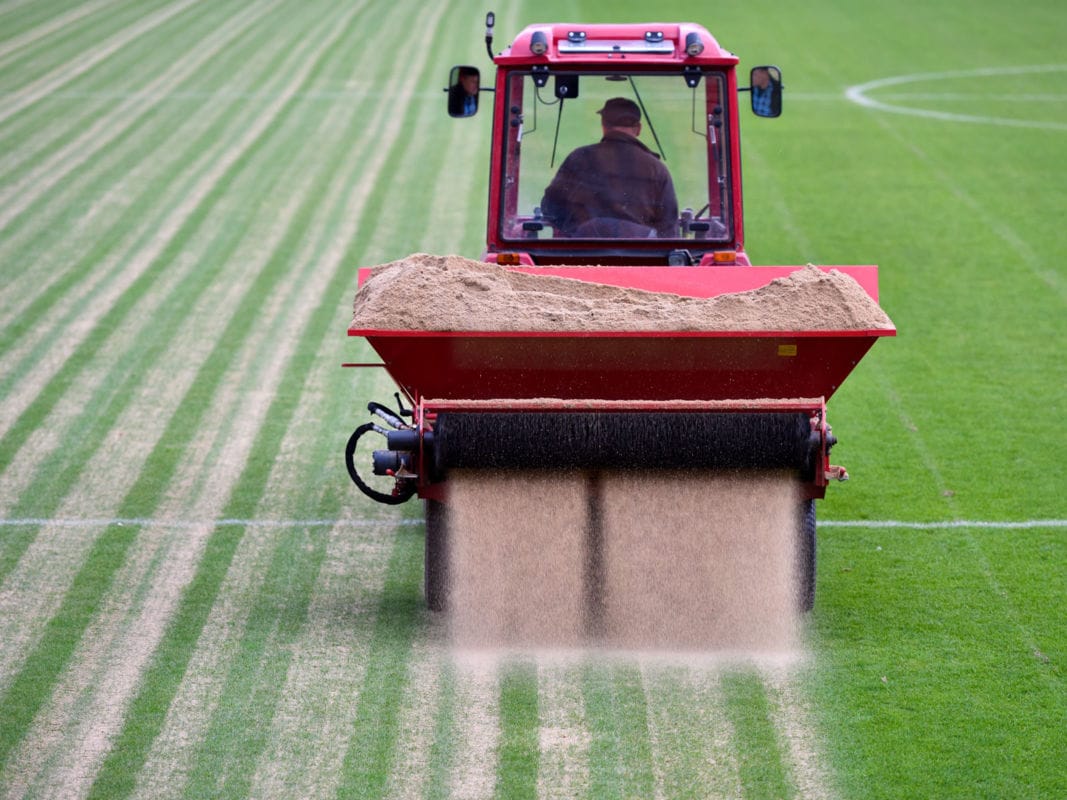Topdressing your lawn is an important part of lawn care. It helps keep your grass healthy and lush. In this guide, you will learn how to topdress your lawn step by step.
What is Topdressing?
Topdressing is the process of adding a thin layer of soil or compost over your lawn. This helps improve soil quality and grass health. It fills in low spots, reduces thatch, and improves drainage.
Why Topdress Your Lawn?
There are many benefits to topdressing your lawn. Here are some key reasons:
- Improves Soil Quality: Adds nutrients and organic matter.
- Enhances Grass Growth: Promotes new grass growth.
- Reduces Thatch: Breaks down thatch layers.
- Levels Lawn Surface: Fills in low spots and holes.
- Improves Drainage: Helps water penetrate the soil better.
Materials Needed
Before you start, gather all the necessary materials. Here’s what you need:
| Material | Description |
|---|---|
| Topdressing Mix | A blend of sand, compost, and soil. |
| Rake | Used to spread the mix evenly. |
| Shovel | For scooping the topdressing mix. |
| Wheelbarrow | To transport the mix around the lawn. |
| Watering Can or Hose | For watering the lawn after topdressing. |
Step-by-Step Guide to Topdress Your Lawn
Follow these steps to topdress your lawn effectively:
Step 1: Mow Your Lawn
Mow your lawn to a shorter height than usual. This makes it easier to spread the topdressing mix.
Step 2: Aerate The Lawn
Aerate the lawn to create small holes in the soil. This helps the topdressing mix penetrate better.
Step 3: Prepare The Topdressing Mix
Mix sand, compost, and soil in a wheelbarrow. The ratio is usually 3 parts sand, 3 parts compost, and 4 parts soil.
Step 4: Spread The Topdressing Mix
Use a shovel to scoop the mix and place it on the lawn. Spread it evenly using a rake.
Step 5: Work The Mix Into The Soil
Use the back of the rake to work the mix into the soil. Make sure it fills any low spots and is evenly spread.
Step 6: Water The Lawn
Water the lawn thoroughly to help the topdressing mix settle. This also encourages new grass growth.
When to Topdress Your Lawn
Topdressing should be done during the growing season. This is usually in spring or early fall. Avoid topdressing during hot summer months.

Credit: premierlawns.co.uk
How Often Should You Topdress?
Topdressing can be done once a year. For lawns in poor condition, twice a year may be needed. Regular topdressing helps maintain a healthy lawn.

Credit: www.wikihow.com
Tips for Successful Topdressing
Follow these tips for the best results:
- Use Quality Materials: Ensure the topdressing mix is of high quality.
- Don’t Overdo It: Apply a thin layer, about 1/4 inch thick.
- Be Consistent: Regular topdressing yields the best results.
- Water Properly: Keep the lawn well-watered after topdressing.
- Avoid Compaction: Don’t walk on the lawn too much after topdressing.
Common Mistakes to Avoid
Here are some common mistakes to watch out for:
- Applying Too Much Mix: Can smother the grass.
- Using the Wrong Materials: May harm the lawn.
- Topdressing at the Wrong Time: Can stress the grass.
- Not Aerating First: Reduces effectiveness.
Frequently Asked Questions
What Is Topdressing A Lawn?
Topdressing is the process of adding a thin layer of soil or compost over your lawn to improve its quality.
How Often Should I Topdress My Lawn?
Topdress your lawn once or twice a year to maintain optimal soil health and grass growth.
Can I Topdress My Lawn Myself?
Yes, you can topdress your lawn yourself with basic gardening tools and materials like soil or compost.
What Materials Are Best For Topdressing?
Use compost, sand, or a mix of topsoil and sand. These materials improve soil structure and lawn health.
Conclusion
Topdressing your lawn is a simple yet effective way to improve its health. Follow the steps in this guide, and you’ll have a lush, green lawn in no time. Remember to use quality materials and avoid common mistakes. Happy gardening!
